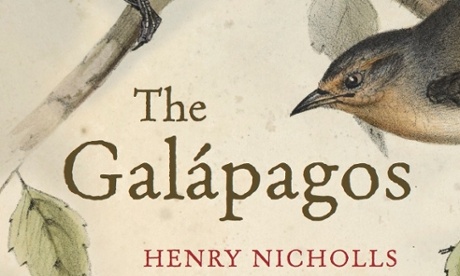
“The natural history of these islands is eminently curious, and well deserves attention.” So wrote Charles Darwin of the Galapagos in the first edition of his Journal of Researches.
I love this sentence. I love its modest, quintessentially Victorian style. I love its central observation (for the natural history of these islands is, indeed, eminently curious). But most of all, I love its prophetic take-home message that the Galapagos archipelago would prove to be a fruitful site for future research. Darwin, as ever, was spot on.
Some of the earliest visitors to the Galapagos were horrified by what they found. For the Bishop of Panama, for instance, (who first discovered the islands in 1535), this rabble of raw, parched, Pacific volcanoes with their devil-like iguanas and gargantuan tortoises was like hell on earth. But for Darwin (and all those who came in his intellectual wake) the Galapagos archipelago proved to be more like paradise. It was for me.
So when I was approached to write a new book on the Galapagos, I was only too delighted. As anyone who has taken the book-writing plunge will know, it can take a long time to figure out the right structure. It usually emerges slowly, organically after an awful lot of writing and overwriting, shuffling passages around and then moving them back. But in the case of The Galapagos, I quite quickly hit upon the simple idea of building up the ecology of the islands, chapter by chapter, from rocks, to the ocean, to seabirds, to plants, to invertebrates, to land birds, to reptiles and ultimately to humans. It’s an intuitive structure that helped a lot in the writing. I hope it will make for an informative and entertaining read
In writing The Galapagos, one of my missions has been to mix up the natural and the human history of the archipelago. Most other books on the islands (of which there are many excellent examples) tend to dwell on either the rocks, plants and animals at the exclusion of the humans or vice versa. I wanted to create a single, accessible volume that does both, revealing much of the wonderful natural history but through the first-hand experiences of some of the islands’ most famous visitors (such as the Bishop of Panama, the American naval officer David Porter, Charles Darwin, Moby-Dick author Herman Melville and naturalist William Beebe) and through the work of dozens of scientists and conservationists who have dedicated their lives to the Galapagos over the past several decades. All these works have been a joy to read, to ponder and to write about.
Immersing myself in all things Galapagos has also helped me clarify my thinking on why these islands matter so much, and not just to fans of the natural world or self-confessed Darwin nuts like me.
- The Galapagos matters to those who live there (the plants, the animals, the humans whose lives depend on it).
- The Galapagos matters to Ecuador (whose tourism industry relies on it).
- The Galapagos matters to around 1.5 million people around the world (who have had the good fortune to visit).
- The Galapagos matters to everyone else as a model system (for what it might yet teach us).
If my point is not yet clear, the Galapagos matters. If you go “Like” The Galapagos on my Facebook page, I’ll be very happy. If you buy a copy, I’ll love you forever.
The Galapagos: A Natural History goes on sale in the UK today (Profile Books) and will appear in the US in April (Basic Books)

